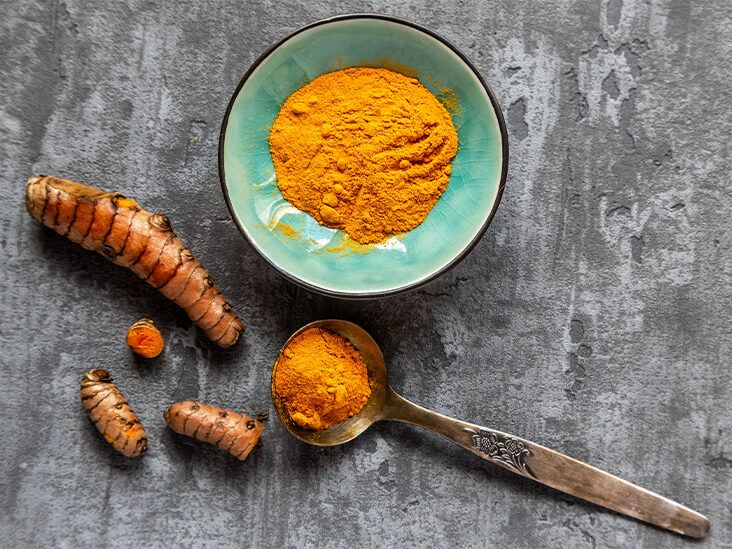Turmeric is a potent spice with active compounds like curcumin, known for its health benefits. To harness its maximum benefits, it’s essential to consume turmeric in ways that improve its absorption. Here’s how you can incorporate turmeric daily and the eight health benefits it can bring.

How to Consume Turmeric Daily for Maximum Benefits
- Add Black Pepper: Black pepper contains piperine, which can increase curcumin absorption by up to 2,000%. Adding a pinch to your turmeric dishes or drinks can amplify its effects.
- Combine with Healthy Fats: Curcumin is fat-soluble, meaning it absorbs better when consumed with healthy fats like coconut oil, olive oil, or avocado. Try adding turmeric to smoothies with a healthy fat source.
- Turmeric Tea or Golden Milk: Mix turmeric with milk (dairy or plant-based), a pinch of black pepper, and a bit of honey or cinnamon for a comforting drink that enhances absorption.
- Turmeric Smoothies: Add a teaspoon of turmeric powder to your smoothies, along with some black pepper and coconut oil, for a nutrient boost.
- Turmeric in Cooking: Use turmeric in soups, curries, and stews. The heat from cooking helps release its beneficial compounds, and the natural oils in food can aid absorption.
- Turmeric Supplements: For a more potent dose, consider curcumin supplements. Look for supplements that include piperine or are labeled “bioavailable.”
- Make a Turmeric Paste: Mix turmeric with water, black pepper, and a small amount of coconut oil to create a paste. This can be added to dishes or dissolved in warm water.
- Mix with Ginger: Combine turmeric and ginger in tea or smoothies for added anti-inflammatory benefits.

8 Health Benefits of Turmeric
- Anti-Inflammatory PropertiesTurmeric’s curcumin is known for its strong anti-inflammatory effects, which may help manage chronic inflammation associated with arthritis, heart disease, and diabetes.
- Antioxidant PowerhouseCurcumin is a powerful antioxidant that helps combat oxidative stress, protecting cells and DNA from damage.
- Supports Brain HealthTurmeric may increase levels of brain-derived neurotrophic factor (BDNF), potentially improving memory and reducing the risk of age-related cognitive decline.
- Lowers Risk of Heart DiseaseCurcumin’s anti-inflammatory and antioxidant effects help support cardiovascular health by reducing inflammation in blood vessels and improving endothelial function.
- May Reduce Cancer RiskSome studies suggest curcumin may inhibit the growth and spread of cancer cells, particularly in cancers of the digestive system, due to its anti-inflammatory and antioxidant properties.
- Eases Arthritis SymptomsDue to its anti-inflammatory effects, turmeric can reduce pain and stiffness associated with arthritis, making it a natural alternative to some anti-inflammatory medications.
- Promotes Healthy DigestionTurmeric stimulates bile production, which aids digestion and can help reduce bloating and gas. Its anti-inflammatory properties may also support gut health.
- Aids in Diabetes ManagementCurcumin may improve insulin sensitivity and lower blood sugar levels, which can be beneficial for people managing diabetes or prediabetes.
Note: While turmeric is generally safe in culinary amounts, large doses can cause gastrointestinal issues or interact with certain medications. It’s best to consult a healthcare provider if you’re considering high doses or supplements, especially if you’re on medication.


